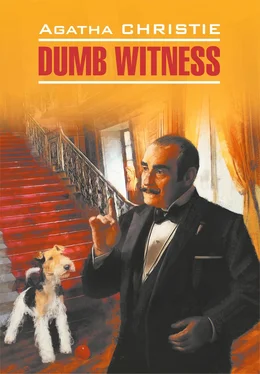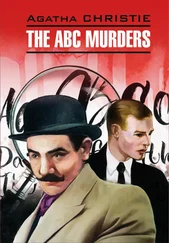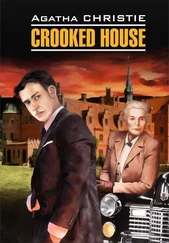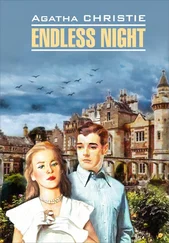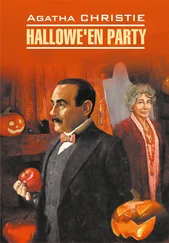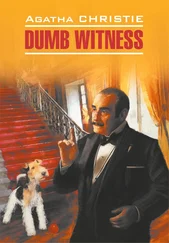‘Yes,’ I admitted. ‘I did.’
In the silence that ensued, I watched Poirot. Presently I said:
‘What are you thinking of, Poirot?’
‘I am reflecting on various people, handsome young Norman Gale, bluff, hearty Evelyn Howard, the pleasant Dr Sheppard, the quiet, reliable Knighton.’
For a moment I did not understand these references to people who had figured in past cases.
‘What of them?’ I asked.
‘They were all delightful personalities…’
‘My goodness, Poirot, do you really think that Tanios—’
‘No, no. Do not jump to conclusions, Hastings. I am only pointing out that one’s own personal reactions to people are singularly unsafe guides. One must go not by one’s feelings but by facts.’
‘H’m,’ I said. ‘Facts are not our strong suit [426] strong suit – сильная сторона
. No, no, Poirot, don’t go over it all [427] to go over smth – рассматривать ч.-л.
again!’
‘I will be brief, my friend, do not fear. To begin with, we have quite certainly a case of attempted murder. You admit that, do you not?’
‘Yes,’ I said slowly. ‘I do.’
I had, up to now, been a little sceptical over Poirot’s (as I thought) somewhat fanciful reconstruction of the events on the night of Easter Tuesday. I was forced to admit, however, that his deductions were perfectly logical.
‘Très bien [428] Très bien – (фр.) Очень хорошо
. Now one cannot have attempted murder without a murderer. One of the people present on that evening was a murderer—in intention if not in fact.’
‘Granted.’
‘Then that is our starting point—a murderer. We make a few inquiries—we, as you would say—stir the mud—and what do we get—several very interesting accusations uttered apparently casually in the course of conversations.’
‘You think they were not casual?’
‘Impossible to tell at the moment! Miss Lawson’s innocent seeming way of bringing out the fact that Charles threatened his aunt may have been quite innocent or it may not. Dr Tanios’ remarks about Theresa Arundell may have absolutely no malice behind them, but be merely a physician’s genuine opinion. Miss Peabody, on the other hand, is probably quite genuine in her opinion of Charles Arundell’s proclivities—but it is, after all, merely an opinion. So it goes on. There is a saying, is there not, a wolf in the manger. Eh bien, that is just what I find here. There is—not a wolf—but a murderer in our manger.’
‘What I’d like to know is, what you yourself really think, Poirot?’
‘Hastings—Hastings—I do not permit myself to “think”– not, that is, in the sense that you are using the word. At the moment I only make certain reflections.’
‘Such as?’
‘I consider the question [429] to consider a question – рассматривать вопрос
of motive. What are the likely motives for Miss Arundell’s death? Clearly the most obvious one is gain. Who would have gained by Miss Arundell’s death—if she had died on Easter Tuesday?’
‘Everyone—with the exception of Miss Lawson.’
‘Precisely.’
‘Well, at any rate, one person is automatically cleared.’
‘Yes,’ said Poirot thoughtfully. ‘It would seem so. But the interesting thing is that the person who would have gained nothing if death had occurred on Easter Tuesday, gains everything when death occurs two weeks later.’
‘What are you getting at, Poirot?’ I said, slightly puzzled.
‘Cause and effect [430] cause and effect – причина и следствие
, my friend, cause and effect.’
I looked at him doubtfully.
He went on:
‘Proceed logically! What exactly happened—after the accident?’
I hate Poirot in this mood. Whatever one says is bound to be wrong! I proceeded with intense caution.
‘Miss Arundell was laid up in bed.’
‘Exactly. With plenty of time to think. What next?’
‘She wrote to you.’ Poirot nodded.
‘Yes, she wrote to me. And the letter was not posted. A thousand pities [431] a thousand pities – (разг.) очень жаль
, that.’
‘Do you suspect that there was something fishy about that letter not being posted?’
Poirot frowned.
‘There, Hastings, I have to confess that I do not know. I think—in view of everything I am almost sure—that the letter was genuinely mislaid. I believe—but I cannot be sure—that the fact that such a letter was written was unsuspected by anybody. Continue—what happened next?’
I reflected.
‘The lawyer’s visit,’ I suggested.
‘Yes—she sent for her lawyer and in due course [432] in due course – должным образом
he arrived.’
‘And she made a new will,’ I continued.
‘Precisely. She made a new and very unexpected will. Now, in view of that will we have to consider very carefully a statement made to us by Ellen. Ellen said, if you remember, that Miss Lawson was particularly anxious that the news that Bob had been out all night should not get to Miss Arundell’s ears.’
‘But—oh, I see—no, I don’t. Or do I begin to see what you are hinting at…?’
‘I doubt it!’ said Poirot. ‘But if you do, you realize, I hope, the supreme importance of that statement.’
He fixed me with a fierce eye [433] to fix with an eye – впиться взглядом
.
‘Of course. Of course,’ I said hurriedly.
‘And then,’ continued Poirot, ‘various other things happen. Charles and Theresa come for the weekend, and Miss Arundell shows the new will to Charles—or so he says .’
‘Don’t you believe him?’
‘I only believe statements that are checked. Miss Arundell does not show it to Theresa.’
‘Because she thought Charles would tell her.’
‘But he doesn’t. Why doesn’t he?’
‘According to Charles himself he did tell her.’
‘Theresa said quite positively that he didn’t —a very interesting and suggestive little clash. And when we depart she calls him a fool.’
‘I’m getting fogged [434] to get fogged – запутаться
, Poirot,’ I said plaintively.
‘Let us return to the sequence of events. Dr Tanios comes down on Sunday—possibly without the knowledge of his wife.’
‘I should say certainly without her knowledge.’
‘Let us say probably. To proceed! Charles and Theresa leave on the Monday. Miss Arundell is in good health and spirits. She eats a good dinner and sits in the dark with the Tripps and the Lawson. Towards the end of the séance she is taken ill. She retires to bed and dies four days later and Miss Lawson inherits all her money, and Captain Hastings says she died a natural death!’
‘Whereas Hercule Poirot says she was given poison in her dinner on no evidence at all!’
‘I have some evidence, Hastings. Think over our conversation with the Misses Tripp. And also one statement that stood out from Miss Lawson’s somewhat rambling conversation.’
‘Do you mean the fact that she had curry for dinner? Curry would mask the taste of a drug. Is that what you meant?’
Poirot said slowly:
‘Yes, the curry has a certain significance, perhaps.’
‘But,’ I said, ‘if what you advance (in defiance of all the medical evidence) is true, only Miss Lawson or one of the maids could have killed her.’
‘I wonder.’
‘Or the Tripp women? Nonsense. I can’t believe that! All these people are palpably innocent.’
Читать дальше
Конец ознакомительного отрывка
Купить книгу
